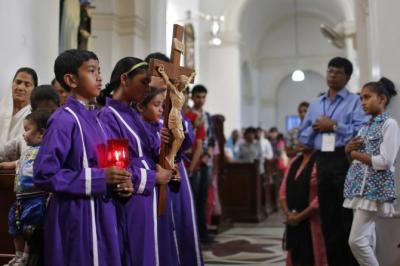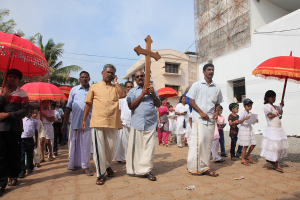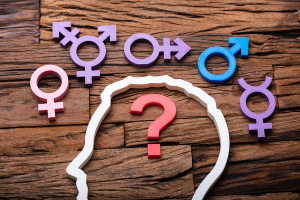Stop the endless persecution of Christians in India

Religious minorities in India are facing escalating life-threatening violence. On May 3rd, a clash broke out that sporadically continues in the state of Manipur in northeast India between Meitei Christians and several regional ethnic communities, majority Kukis. The violence thus far has led to the deaths of at least 88 people, including men, women and children.
In keeping with other instances of religious persecution seen throughout India, Meitei Christians have faced growing threats from groups around them in northeastern India — either renounce your Christian faith and return to Meitei traditional religious practices or face dire consequences.
As we have seen since early May, the consequences for Christians in Manipur have in fact been severe — numerous lives on both sides of the conflict have been lost, and many have sustained severe injuries. Further, many Christian churches in the area have been either dismantled, looted for valuable parts, or have been completely burned to the ground.
The destruction and violence in Manipur now have resulted in a full humanitarian crisis, leaving tens of thousands of people homeless and in army relief camps.
This is not the first time religiously tinged violence has occurred recently in India. In December 2022, over 1,000 Christians in Chhattisgarh in eastern India fled their homes following violent attacks by their tribal kin. These mobs destroyed churches, decimated statues of Jesus and Mary, and beat anyone suspected of being a Christian, resulting in over 20 people being hospitalized with severe injuries. There have been over 200 complaints registered with the local authorities and the National Commission of Women, but no concrete action seems to have been taken in response. Instead, the state police arrested many Christian leaders (among others) in January, and 24 of these were kept behind bars for over two months, being released at the end of April this year.
Over the past few years, multiple states in India have introduced or intensified laws that limit religious conversion. These laws include prohibitions on conversions, requirements to notify the government of one’s intent to convert, and provisions that presume an individual accused of violating an anti-conversion law is guilty. Punishments for those convicted of conversion can include three to ten years of jail time or massive fines.
Since the introduction of these conversion laws, there have been over 1,200 instances of assault towards Christians and other religious minorities, and those are only the ones that have been reported. These assaults often manifest in a similar way—a group of Christians will gather together to pray in a private residence or church, at which point, a large group of radicals will suddenly assemble and forcefully enter and disrupt the meeting, assault the members, and drag the pastor away. Frequently, the mob will then take the pastor, and, often, other members of the Christian congregation, and turn them into authorities under false allegations of illegal conversion. This usually ends with the pastor and other church members spending time in jail without bail, all while law enforcement and government officials turn a blind eye toward the assailants.
This is exactly what happened on the Thursday after Easter last year. Christians in Fatehpur, Uttar Pradesh were attending a worship service when a group of over 100 anti-Christian, Hindutva radicals raided the church with weapons drawn. The group illegally restrained and locked 75 of the church members, including women and children, inside the church. Police arrived shortly after, but instead of releasing the frightened church members, they detained and filed a report against 35 of them, accusing them of forcefully converting people to Christianity.
In attendance at the Maundy Thursday service were several employees from the Broadwell Christian Hospital in Uttar Pradesh, an institution that has provided medical care for the poor and marginalized for the last 100 years. Due to the Christian affiliation of the hospital and the Christian faith of the workers, the hospital has been a target for attacks from religious radicals. Over the course of the last year, police have harassed the staff at Broadwell by illegally forcing their way into the hospital and into active operating rooms and hospital offices on more than one occasion. Government officials have ignored the complaints filed by the hospital while extremists have called on the government to shut down Broadwell completely because of its Christian affiliation.
Laws and actions from local, state, and national governments have enabled the violent activities of religious radicals and have all but eradicated the rights of the citizens of India to worship freely. Everyone has the right to freely live out their faith, and international law clearly enshrines the fundamental right to choose and change your religion.
The U.S. and other able voices must implore Indian authorities to address the violence that has gone tepidly responded to for far too long. Too many lives have been lost and too many communities have been destroyed. It’s long past time for the people of India to have the fundamental human right to religious freedom protected so that all may live without fear of persecution.
Sam Brownback is the chairman of the National Committee for Religious Freedom and was the U.S. ambassador-at-large for international religious freedom. He also previously served in the Senate for Kansas and was the governor of Kansas from 2011 to 2018.



























